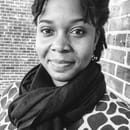Nosocomephobia is the extreme fear of hospitals.
As I drive to Tampa, I try not to think or talk with anyone about where I’m going, because I knew that I would ultimately talk myself out of it. Before I knew it, I was parking my black Hyundai Accent in the back of a giant parking lot. I am running late, so I don’t have time to sit in my car and mentally prepare. If I did, I wouldn’t have gone inside the daunting building.
Soon I find myself walking through the sliding glass doors as a family exits. The dad is holding on tightly to a little boy’s hand, and the mom is trying to console her sobbing daughter. I try not to think about how that’s what I must’ve looked like when my family brought me to the doctor to have my blood drawn for the first time after my little brother was born. I was six at the time.
As I walk towards the family health clinic, I pass many people who look completely unbothered by the setting they were in. People who were bouncing their babies on their hip as they walk down the hallways trying to get them to stop crying. People who were flipping through pages of medical records. People who look exhausted like the weight of the entire world was suddenly placed on their shoulders. I start having flashbacks to 2004.
The antiseptic smell of the hallways.
The feeling of germs crowding in the air, entering my lungs through my nose.
A ghost of a memory that nothing good happens in hospitals.
Yet somehow I still find myself alone in the waiting room filling out a sheet of paper asking personal questions with a fuchsia flower pen. I don’t know how I had gotten this far. This is the first time I had been to the doctor without the presence of my mother in the seat beside me. Why did I actually come?
Then I hear a young woman call my name. It takes me a minute to register that she was calling for me, and I rise and numbly follow her down the bleak hallway with the familiar smell of sanitizer slapping me in the face.
“Step on the scale,” she orders.
I fumble with my sandals and almost trip over my own feet trying to take them off.
She takes me even farther down the hallway and leads me into a tiny room, asking me to sit on the chair near the desk. She asks me questions that I already filled out on the paper while I nervously run my finger across the beads of my orange Lokai bracelet on my left wrist. I watch her hands as she types all my personal information into a medical database. I tell her that I like her rose nails.
When she’s done typing, she puts a clip on my left pointer finger, wraps the blood pressure band around my left bicep, and tells me to stick a thermometer under my tongue. My breathing picks up. Will they be able to tell I’m nervous? The band starts getting tighter.
“Can you uncross your legs?” the nurse asks.
That’s what they asked me to do when they took my blood.
The band gets tighter.
My breathing gets faster.
The band gets tighter.
My breathing gets faster.
It feels like someone is grabbing my arm, and they won’t let me go.
Why is it so tight?
Why isn’t it stopping?
Finally it releases, and I feel like I can breathe again.
The nurse leaves me with a promise that the doctor will be in soon and locks me in the tiny room all by myself. I check my phone, hoping to text one of my friends for comfort or a distraction. There is no service in here. Fuck. I notice the box for disposing of needles.
Needles.
Needles.
Breathe.
Knock knock.
The doctor comes in. His dark hair is starting to gray. His eyes look kind, but I don’t place any trust in them. He washes his hands in the sink and then leans against the side of it as he asks me questions. He asks me to sit on the exam bench, but I really don’t want to. I can’t find the voice to argue though, so I slowly walk over and sit on that crinkly white paper while he talks and makes jokes.
By the end of the appointment, I find myself mindlessly walking down the hallway to the laboratory.
I think I can do it. It is just a simple breath test. He promised me there was no blood involved. I’m twenty years old, I can do a breath test.
I walk over to the laboratory and receive a ticket with “B267” in big bold letters across the small sheet of receipt paper. My number is called to the desk, so I stagger up there. The nurse asks for my ID, and I hand him the receipt not registering what he was asking for. He looks at it and repeats that he needs my ID. I notice him subtly place the receipt on the counter in front of me while continuing to stare at me like he’s trying to decide to ask if I’m okay or not.
No, I’m not.
I apologize and fumble around in my wallet, trying to grab my ID as quickly as possible. He scans it and hands me stickers with serial and test numbers and tells me to have a seat.
I sit in the waiting room in the laboratory, waiting for my number to be called. My feet were tapping the floor at different intervals of each other. The TV in front of me plays the Weather Channel, reporting that everywhere across the country is experiencing record highs for this time of the year. That’s all I remember.
Finally my number shows up on the screen with the robot voice announcing it over the loudspeaker like a death sentence. I head towards the chair that has my number displayed above it in pixelated red numbers and letters. It is the same chair I had sat in when they tried to draw my blood the first time, and I had fainted. My palms instantly became really sweaty, and I start picking at a scab on my wrist until it begins bleeding.
I sit down, and the nurse comes up to me with a needle. My breath stops.
“Isn’t this supposed to be just a breath test?” I ask in a small voice.
She looks at the stickers I was handed and agrees that I am right. She then puts the needle away.
Okay. Deep breaths. It’s just a breath test.
She lowers the bar across the chair, making me feel trapped. Why do I need it? Now I can’t escape. Why am I here? Why did I come alone? Why did I come at all?
It’s just a breath test. You’re fine. No needles.
She hands me a white Styrofoam cup with a pill crushed inside of it, instructing me to drink it in two minutes through a tiny white straw. I’m a slow drinker, and the drink tastes like bitter bubblegum water. After I begin, it is difficult to convince myself to keep drinking it. The nurse keeps staring at me telling me to hurry up. Then a teenage boy walks in with his mom and sits down right next to me. Another nurse comes and starts drawing his blood and continues to talk with the family about it. My nurse keeps yelling at me to drink faster.
The room starts going black.
I can’t breathe.
I begin sweating through my clothes.
“You have forty-five seconds left.”
“Does the needle hurt?”
Needle.
“Yeah.”
“Thirty seconds.”
The bitterness stings my throat.
The room starts fading away.
“Twenty-five seconds.”
“A few more tubes left.”
I can’t breathe.
“It feels weird.”
“I can’t do this,” I put the cup down on the counter and flip the chair’s bar up.
I stand up too fast.
“Well this will invalidate the test, and you’ll have to come back,” the nurse says.
I mumble something about being sorry and thank you for trying and make my way out to the parking lot. I walk quickly to my car, hoping not to see anyone that I had encountered. I lock myself in the car, holding my knees up to my chest. I can’t really breathe, and I am really dizzy. My palms and armpits are sweaty. I feel like I’m going to start crying, but I’m not sure why. I don’t start the car; I can’t drive back home yet.
The boy and his mom who were in the lab walk out and see me sitting in the car and give me a strange look. Everyone is judging me. I’m sorry. I’m sorry I caused a scene; I didn’t mean to. I thought I could do it. I’m twenty years old; I’m perfectly aware I can’t avoid the hospital forever. The nurse who had checked my weight and blood pressure walks by and gives me an odd look.
I’m sorry.
I tried.
HC,
Alyssa Harmon



